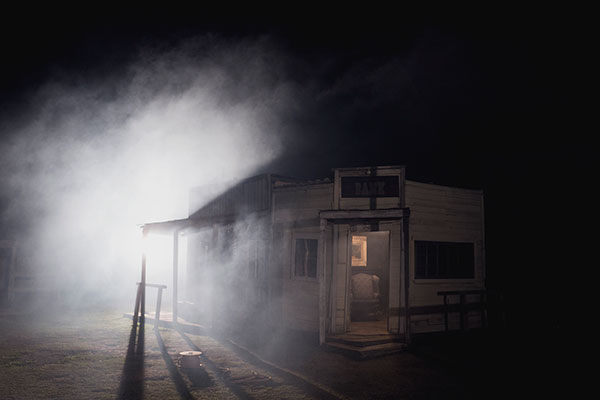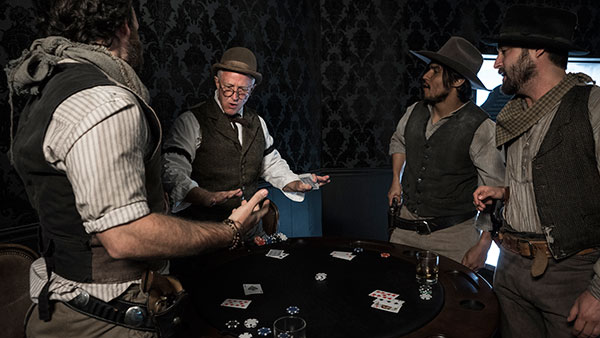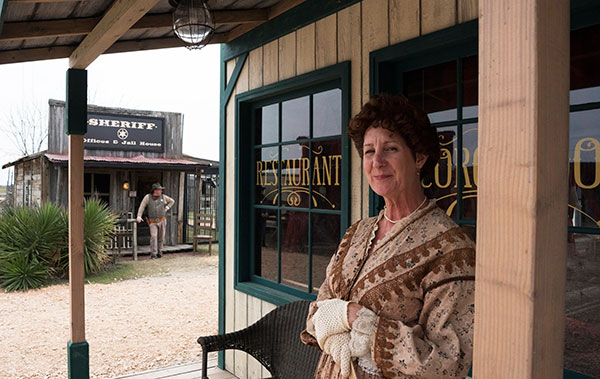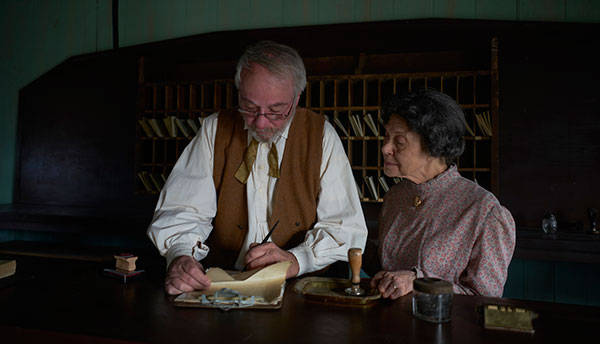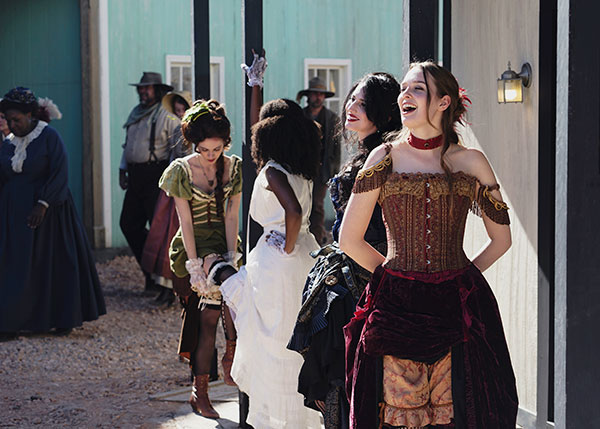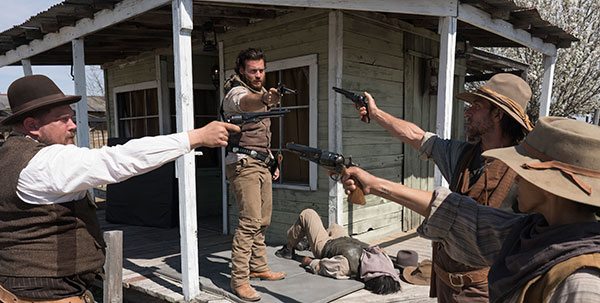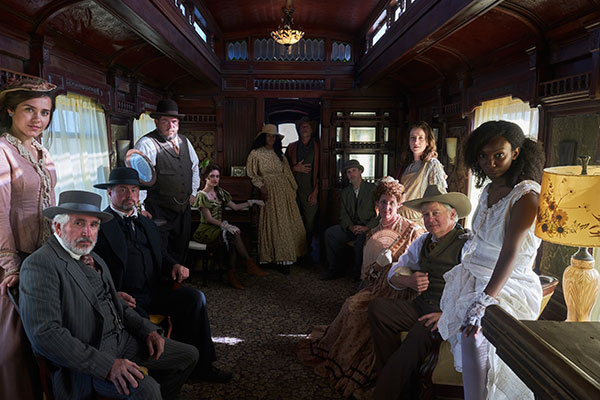Strategy May 02, 2018
Secrets of the Dazzling Westworld Brand Experience
At San Diego Comic-Con 2017, it was Los Angeles 2049. At least it was for attendees who visited the Blade Runner 2049 Experience. In the immersive brand activation, visitors had to spill if they were a replicant, frequented Deckard’s favorite noodle bar and soaked (somewhat literally, thanks to the indoor rain) in the film’s signature neo-noir ambience. Four hour lines to get in were the norm; of course, fans loved it. “We knew it was risky,” says Patrick Jong, director of experiential for Giant Spoon, the innovative marketing agency that created the experience. “But we also knew we were creating something that was special and magnificent.”
>>Creating Connections With Experiential Marketing
Immediately after, Giant Spoon was asked to do it again – bigger and better.
Drone View
Watch a drone fly over the set of the fictitious town of Sweetwater, a theme park created for an immersive Westworld experience at South by Southwest.
Eight months later, the Westworld Experience was the talk of South by Southwest. On the bones of an abandoned Texas ghost town, Giant Spoon recreated the western theme park of Sweetwater from the hit TV show and populated it with 60 actors. Over the span of three days, roughly 4,000 guests frequented the experience, where they had the freedom to follow along with the main story, hunt for clues or simply hang out and take selfies. For fans of the show, it was entertainment come to life.
These brand activations are the most recent high-profile examples of experiential marketing. The basic premise is simple: participating in a brand experience (as opposed to passively consuming content) creates an emotional connection, which leads to customer loyalty and a higher likelihood of conversion. In its four years of existence, Giant Spoon has gained notoriety for its dazzling brand activations, raising the bar creatively for this growing marketing trend.
“We went into both projects thinking, ‘What can we do differently that can wow guests?’” Jong says. “Layering in the theatrical component really elevated the experiences. For a guest, it was mind-blowing walking into these immersive sets where you forgot where you were.”
The Westworld Experience was the agency’s most ambitious yet. Why was it so successful? And how do promotional products make these experiences even better? Jong shared some details with Advantages.
Breaking Into Acting
While the Blade Runner Experience had actors, it relied heavily on atmosphere. Westworld, by contrast, had a 444-page script with a prominent storyline involving a bank robbery and a love triangle that culminated in a grand finale. Giant Spoon had to hire a casting director to fill the 60 different roles. Mere brand ambassadors wouldn’t do. “Not to say there isn’t a role for brand ambassadors,” says Jong. “But when you’re talking immersive experience, you need actors to really play those roles because a brand ambassador wouldn’t do it justice.”
Choose Your Own Adventure
The Westworld activation was very much free-form, and it showed in the range of experiences shared online. Some closely followed the actors, taking every chance to interact with the blackjack dealer or banker or other “hosts.” A number of guests hung back and simply explored the town, while others doggedly followed the Easter eggs that Giant Spoon had placed throughout – such as a personalized letter at the post office that contained narrative clues. “We created enough things for people to do that they could really choose their own adventure,” says Jong.
Promo Power
Naturally, lots of people posted pictures and videos of their experiences on social media. But Giant Spoon wanted a tangible takeaway: promotional products. “People love free things. At tentpole events like Comic-Con or South by Southwest, they want a great experience but they also want a promotional item,” Jong says. “I don’t think there’ll ever be a shortage of a need for promo items at experiential events. It’s something we build into every program we create. It goes back to what makes sense for that experience. We want the product to feel well-integrated and organic to the experience.”
The item of choice for Westworld? The signature cowboy hats that are doled out in the show when visitors come to the park. When visitors came to the Westworld Experience, they were given black or white hats (just like the show) based on their answers to a series of cryptic questions. Jong says the custom hats needed to be high-quality, and the inside contained a Westworld liner and an Easter egg for fans. “We wanted everyone to be walking around South by Southwest with the cowboy hats,” Jong says. Other keepsakes included coins used at the Mariposa bar and the personalized letters for all arriving guests.
Keep Being Clever
Jong sees the continued appeal of immersive experiential events, but adds that “it doesn’t make sense for every single thing.” As for the next big thing for Giant Spoon: “It’s something we’re thinking – how do we one-up this?” Jong says. “I don’t know that it’s about going bigger. I think it’s about reinventing ourselves, being creative, doing something that’s going to be press- and buzzworthy and will create a reaction and emotional connection between a consumer and a brand.”
Photos
See images of the Westworld Experience, an immersive entertainment experience based on the popular TV show that was the talk of South by Southwest.
